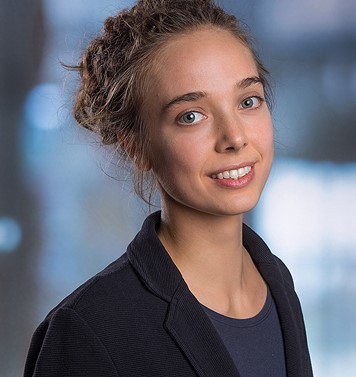
Materiality and mediality
Sociology of knowledge
Sociology of education
Qualitative methods
Consultation hours: Tuesdays 10 – 11 a.m.
12/2024
Doctorate (Dr. phil.) in Sociology
Title of thesis: Digital Choreography
09/2013
Master of Arts
Title of thesis: Luca was a great host. Couchsurfing als vermittelte soziale Praxis
2011-2013
Studies of Sociology, Institute of Sociology, Johannes Gutenberg University Mainz
08/2011
Bachelor of Arts
Title of the thesis: Stumme Teilnehmer im Sprachunterricht
2008-2011
Studies of Sociology (major subject) and Educational Science (minor), Johannes Gutenberg University
from 08/2022
Research Associate, Institute for Sociology, Johannes-Gutenberg University Mainz
08/2020-07/2022
Parental leave
10/2016-07/2020
Research Associate, Institute for Sociology, Johannes-Gutenberg-University Mainz
09/2015-09/2016
Parental leave
2013-2015
Research Associate, Institute for Sociology, Johannes-Gutenberg-University Mainz
Trade journals
Digitale Dokumente und Soziologie der digitalen Analyse. Zur Repräsentation entfernter Gebrauchsweisen. In: Zeitschrift für Qualitative Forschung (1) (2020). Schwerpunktheft: Qualitative Online-Forschung: Methodische und methodologische Herausforderungen (ed.: Thomas Schmidt-Lux/Monika Wohlrab-Sahr).
Digitale Dokumente und Soziologie der Datenanalyse; Frühjahrstagung der Sektion Methoden der qualitativen Sozialforschung: All is data oder data is all? Datafizierung und Datenmanagement: Herausforderungen für die qualitative Sozialforschung. (Online: Tübingen, March 2021)
Digitale Materialität. Analyse des Digitalen und Soziologie der Digitalisierung; AK Organisation und Digitalisierung in der Sektion Organisationssoziologie der DGS (Berlin, March 2020).
Tele-Observation. Use-Trace-Production. Media Ethnography. Workshop: Where is the Action? Cooperative Media Practices in Ethnographic Fieldwork. University of Siegen (sfb1187).
Entre letras móviles y la biblioteca infinita: una sociología de la infraestructura digital. [Between Movable Type and the Infinite Library: A Sociology of Digital Infrastructure]. Lecture to celebrate 50 years of cooperation between JGU-Mainz and Uninorte (Barranqilla – Colombia – April 2025)
Seminar: Research Workshop I (Ethnography, Grounded Theory) (WiSe 2016/17, SoSe 2018)
Seminar: Research Workshop II (M.A.) (SoSe 2017, WiSe 2017/18, WiSe 2019/2020)
Seminar: Digitalization of Education (Sociology) (WiSe 24/25)
Seminar: Equality and difference in school and teaching (regular from SoSe 2013 to SoSe 18, WiSe 2019/20)
Seminar: Communication and Interaction (winter semester 2014/15, summer semester 2015, summer semester 18)
2010-2013
Fellowship from the Hans Böckler Foundation
Every user of the Internet inevitably leaves traces about themselves (Who?), their location (Where?), the time (When?) and the period of use (How long?). Generating these traces – i.e. written minutes -, condensing them into data and presenting them in a readable form is the task of automated analysis tools. They make it possible to observe how people use web pages. Analytical tools are products enriched with theoretical considerations or materialized theorems that enable this observation and at the same time frame its results. From the perspective of a sociology of socio-materiality, the design and production of the analysis tool as well as its use and effect come into focus.
The subject of the doctoral dissertation is the virtual observation of Internet usage practices mediated by analysis tools. Based on theoretical and empirical considerations from the sociology of science and finance on the production and representation of expert knowledge, the study examines, firstly, how the ‘Weiteraum’ (Lindemann) of the Internet is designed and used in everyday life, secondly, how this everyday use is observed and, thirdly, how the observation results flow back into the design of the Internet pages with the aim of increasing the time users spend on the respective pages. In other words, how is the flow of users to the respective website controlled over time? How is usage pre-designed so that the site’s affordance can frame the practice of Internet usage over time without being noticed? What role do algorithms play and how are they constructed? The study draws on media-sociological and materiality-theoretical approaches in Sociology and thus contributes to the analysis of the use and time management of online practices.